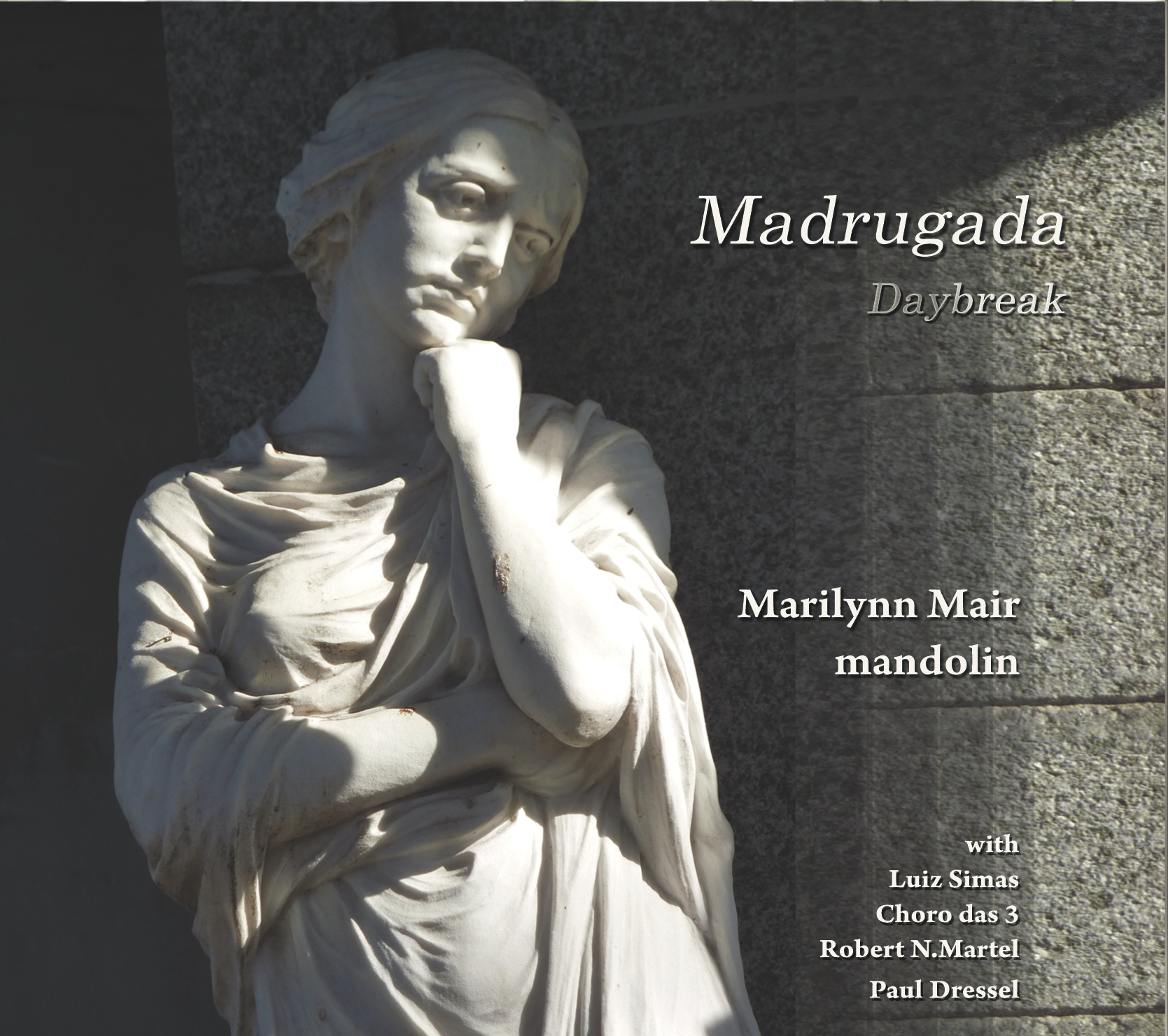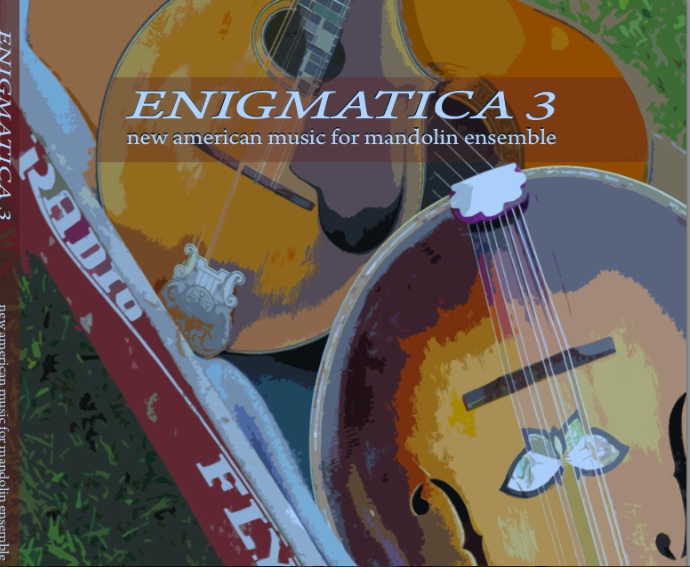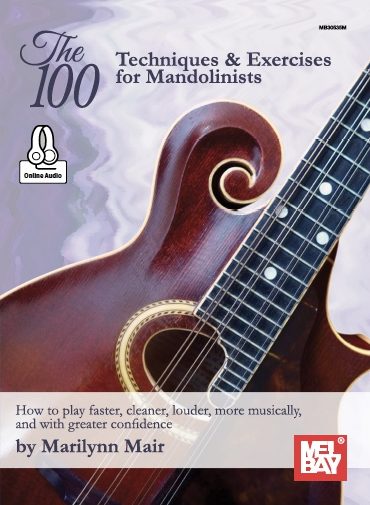based on an article that originally appeared in “Mandolin Quarterly,” 2003, Vol. 8. Nr.3
While browsing the internet for Brazilian music, I happened on the Hot100Br@sil page and its “time machine.” They have figured out a century of the most popular music in Brazil, beginning in 1902 when the first of Brazilian record label was launched in Rio de Janeiro by Casa Edison. Their “Top 40” ratings are based on record sales, sheet music sales, and, later, radio airplay. I’ve gone through the lists from 1902 to 1932, taken out sentimental songs, light classics and imports, and extracted a list of pieces by choro performers and composers from the first three decades of recorded music in Brazil. As we approach 1930 choro fades in popularity as vocal music, samba and imports from North America, take over the charts. I’ve added some notes on the groups and the composers, and left a few of the North American hits on the list, for interest. Here, then, are the greatest hits of choro from 1902 through 1932.
1902
Banda da Casa Edison: Choro do Callado
Os Geraldos: Corta Jaca
Peppa Delgado & Mário Pinheiro: Corta Jaca
Senhorita Odette: Corte na Roça
Banda do Corpo de Bombeiros: Uma Noite de Luar
Sousa’s Band: The Stars And Stripes Forever
· Joaquim António da Silva Callado Jr. was an early choro composer and flautist.
· “Corta Jaca” and “Corte na Roça” are written by Chiquinha Gonzaga.
· The Banda do Corpo de Bombeiros (The Firemen’s Band) was directed by choro composers Anacleto de Medeiros, and later, Albertino Pimentel.
1903
Peppa Delgado & Mário Pinheiro: Corta Jaca
Banda da Casa Edison: Ô Abre Alas
Senhorita Odette: Corte na Roça
Banda do Corpo de Bombeiros: Marília
Sousa’s Band: Washington Post March
· “Ô Abre Alas” was written by Chiquinha Gonzaga
1904
Banda do Corpo de Bombeiros: Corta Jaca; Brejeiro; Rato Rato: Diva; Farrula;
A Turuna; Avenida; Padeiro
Patápio Silva: Amor Perdido; Alvorada das Rosas; Sonho
Peppa Delgado & Mário Pinheiro: Corta Jaca
· Patápio Silva was a virtuoso flautist who played and wrote choro. He also played classical pieces that made the charts too, but in the interests of space I left those and his sentimental tunes off the list.
· Banda do Corpo de Bombeiros are at the peak of their fame under Medeiros, and Medeiros wrote “Diva” and “Farrula”.
· “Brejeiro” and “A Turuna” were written by Ernesto Nazareth.
· Chiquinha’s “Corta Jaca” still rules the charts.
1905
Patápio Silva: Zinha; Alvorada das Rosas; Só Para Moer
Banda do Corpo de Bombeiros: Farrula; A Turuna; Brejeiro
· “Zinha” was written by Patápio Silva
1906
Banda do Corpo de Bombeiros: Três Estrelinhas; A Turuna
Patápio Silva: Margarida
Os Geraldo: Sacy Pererê
Billy Murray: Give My Regards To Broadway
· “Sacy Pererê” was written by Ernesto Nazareth.
· “Três Estrelinhas” was written by Anacleto de Medeiros
1907
Banda da Casa Edison: Iara; Choro e Poesia
Pedro de Alcântara e Ernesto Nazareth: Choro e Poesia; Favorito
Ernesto Nazareth: Escovado
Patápio Silva: Zinha
· “Iara” was written by Anacleto Medeiros
· “Choro e Poesia” was written by Pedro de Alcântara
· “Favorito” was written by Ernesto Nazareth
1908
Pedro de Alcântara e Ernesto Nazareth: Choro e Poesia
Ernesto Nazareth: Escovado
Banda do Corpo de Bombeiros: Barão do Rio Branco
Grupo Chiquinha Gonzaga: Te Amo; Cubanita; Sultana
Patápio Silva: Zinha
Enrico Caruso: I Pagliaci-Vesti La Giubba
· “Escovado” was written by Nazareth
· Chiquinha wrote all the music performed by her group, this and every year
1909
Banda da Casa Edison: Choro e Poesia
Grupo Chiquinha Gonzaga: Te Amo; Sultana
Pedro de Alcântara e Ernesto Nazareth: Choro e Poesia
Victor Orchestra: The Glow-Worm
Billy Murray & Haydn Quartet: Take Me Out To The Ball Game
1910
Choro Carioca: Albertina; Dainéia
Grupo Chiquinha Gonzaga: Só na Flauta
· “Choro Carioca” was founded by Joaquim António da Silva Callado Jr., who wrote much of their music
1911
Grupo Chiquinha Gonzaga: Lua Branca; Atraente; Só na Flauta;
Choro Carioca: Salve; Nhonhô em SarilhoNininha; São João
Debaixo D’Água; Dainéia
Banda da Casa Edison: Ô Abre-Alas
1912
Grupo Chiquinha Gonzaga: O Forrobodó; Te Amo; Passos no Choro; Atraente; Plangente; Pudesse Esta Paixão
Mário Pinheiro: Iara
Choro Carioca: O Morcego; Qualquer Coisa; Nininha
Grupo do Pixinguinha: La Brisa
Grupo O Passos no Choro: Cecy e Pery
Grupo Odeon: Tudo na Rua
Ada Jones & Billy Murray: Come, Josephine, In My Flying Machine
· Pixinguinha, perhaps the greatest composer of choro ever, first hits the chart He’s 15.
· “Passos no Choro” is a piece by Chiquinha‹so maybe this is a tribute band?
1913
Banda da Casa Edison: Língua de Preto
Grupo Chiquinha Gonzaga: Pudesse Esta Paixão; Sultana; Plangente; Falena
Grupo do Louro: Urubu Malandro
Banda do Corpo de Bombeiros: Tupã (Deus do Fogo) –
Canhoto: Belo Horizonte; Devaneio; Pisando na Mola
Pedro de Alcântara e Ernesto Nazareth: Linguagem do Coração
Choro Carioca: Não Tem Nome; Rosecler
· Canhoto played guitar and cavaquinho as a soloist, and later, in the 40’s & 50’s led groups with Dino 7 Cordas and Jacob do Bandolim
· “Linguagem do Coração” was written by Joaquim António da Silva Callado Jr
1914
Grupo Chiquinha Gonzaga: Atraente; Plangente; Falena; Catita; Bióne (Adeus); Sonhando; Cubanita; O Diabinho; Flor de Espuma; Besouro Encantado
Grupo do Louro: Urubu Malandro
Grupo dos Chorosos: Cismando
Grupo do Canhoto: Tuim Tuim
Canhoto: Belo Horizonte
Grupo da Casa Edison: Urubu Malandro
Enrico Caruso: Ave Maria
· Chiquinha has 10 hits in one year!
1915
Grupo O Passos no Choro: Apanhei-te Cavaquinho; Flor do Mal
Grupo Chiquinha Gonzaga: Falena; O Diabinho; Plangente; Atraente; Sonhando; Cubanita; Catita
Grupo do Louro: Urubu Malandro
Choro Carioca: Carne Assada
American Quartet: It’s A Long, Long Way To Tipperary
· “Apanhei-te Cavaquinho” was written by Ernesto Nazareth
1916
Grupo Chiquinha Gonzaga: Catita
Canhoto: Beijos e Lágrimas
Grupo O Passos no Choro: Apanhei-te Cavaquinho; Flor do Mal
Choro Carioca: Carne Assada
1917
Bahiano: Pelo Telefone; Dança do Urubu
Choro do Pixinguinha: Sofres Porque Queres; Rosa; Morro da Favela
Grupo O Passos no Choro: Maricota Sai da Chuva
Choro Carioca: Guará
· “Pelo Telefone,” written by Pixinguinha and Donga, is credited as the first samba.
· Pixinguinha writes all the music for his groups, this and every year.
1918
Canhoto: Nhá Maroca Foi S’imbora; Madrugando
Orquestra Típica Pixinguinha-Donga: O Malhador
American Quartet: Over There
1919
Choro do Pixinguinha: Rosa; Morro da Favela; Porque Queres; Os Oito Batutas
Os Oito Batutas: Já Te Digo
Canhoto: Madrugando
Al Jolson: Rock-A-Bye Your Baby With A Dixie Melody
· Os Oito Batutas (The 8 Hotshots), Pixinguinha’s all-star group, begins to record
1920
Choro do Pixinguinha: Sofres Porque Queres; Fica Calmo Que Aparece; Rosa
Original Dixieland Jazz Band: Tiger Rag
1921
Grupo do Pixinguinha: Domingo Eu Vou Lá; Eu Também Vou
Al Jolson: Swanee
1922
Luiz Americano & O Grupo de Donga: Coração Que Bate, Bate
Os Oito Batutas: Urubu; Já Te Digo
Fanny Brice: My Man
· Luiz Americano was a choro clarinetist and composer.
1923
Os Oito Batutas: Ba-Ta-Clã; Vem Ele; Carurú; Lá-Re; Garuna; Vira a Casaca!; Três Estrelinhas; Meu Passarinho; Até a Volta; Até Eu!; Faladô
Al Jolson: Toot Toot Tootsie (Goo’bye)
· 11 hits for Os Oito Batutas, the only ones still on the charts.
1924
Os Oito Batutas: Lá Vem Ele; Papai Souber; Vitorioso
Al Jolson: April Showers
1925
Canhoto: Marcha Triunfal Brasileira; Abismo de Rosas
Paul Whiteman; Oh! Lady Be Good
Bessie Smith: Down Hearted Blues
1926
Canhoto: Marcha Triunfal Brasileira; Marcha dos Marinheiros; Abismo de Rosas; Os Teus Olhos
Cândido das Neves: Cochichando
Grupo 10 Azes de Pixinguinha: Tapa Buraco
Bessie Smith: The St. Louis Blues
Ben Bernie: Sweet Georgia
· “Cochichando” was written by Pixinguinha
1927
Canhoto: Abismo de Rosas; Viola, Minha Viola
Ben Selvin: Blue Skies
1928
Orquestra Típica Pixinguinha-Donga: Carinhoso; Lamentos
1929
Guy Lombardo: Sweethearts On Parade
Cliff Edwards: I Can’t Give You Anything But Love
1930
Carmen Miranda: Pra Você Gostar De Mim (Tahi); Iaiá, Ioiô; Eu Gosto da Minha Terra; Eu Quero Casar Com Você; Burucuntum; Gostinho Diferente
Orquestra Victor Brasileira: Urubatã
Ratinho: Saxofone, Por Que Choras?
Harry Richman: Puttin’ On The Ritz
1931
Orquestra Colbaz: Tico-Tico no Fubá
Carmen Miranda: Sonhei Que Era Feliz; Benzinho; Eu Sou do Barulho
Luiz Americano: É do Que Há
Cab Calloway: Minnie The Moocher
· “Tico-Tico no Fubá,’ perhaps the most famous choro, was written by Zequinha de Abreu.
1932
Carmen Miranda: Tenho Um Novo Amor; Mulato de Qualidade
Louis Armstrong: All Of Me




